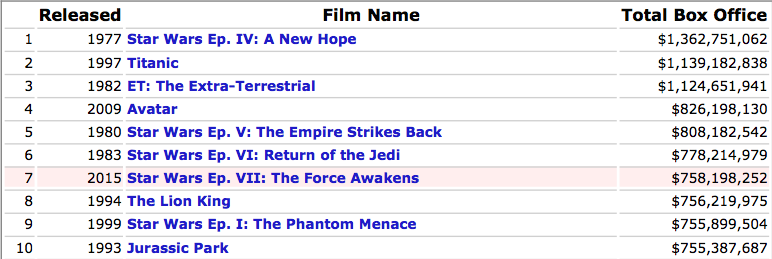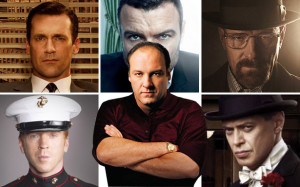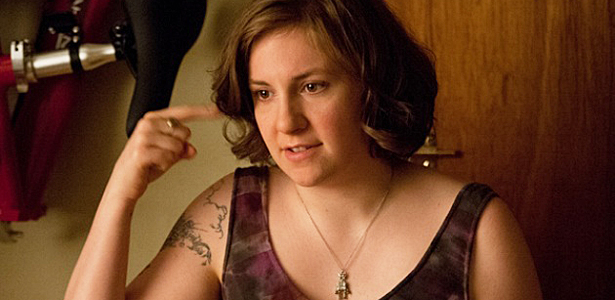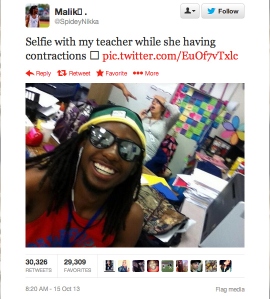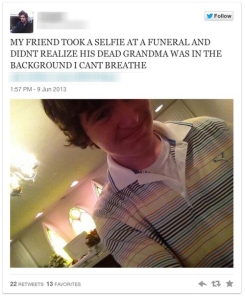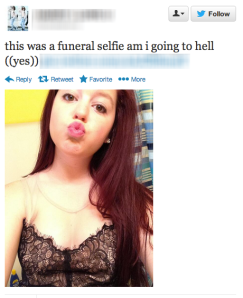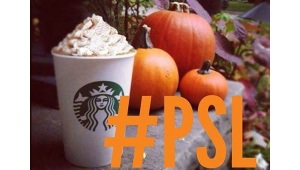Playing Sports Left-Handed
Dexterity is in short supply as the boys of Cook St. try their honest best to look cool playing sports left-handed.
Slow motion, it seems, may even make it worse.
- Posted by admin
- Sketches, Sketches Row 1, Top Videos
- 0 Comment
New Podcast- Comedy for the Blind
- Posted by admin
- Front Page Slider
- 0 Comment
Thoughts from the Alt-Left
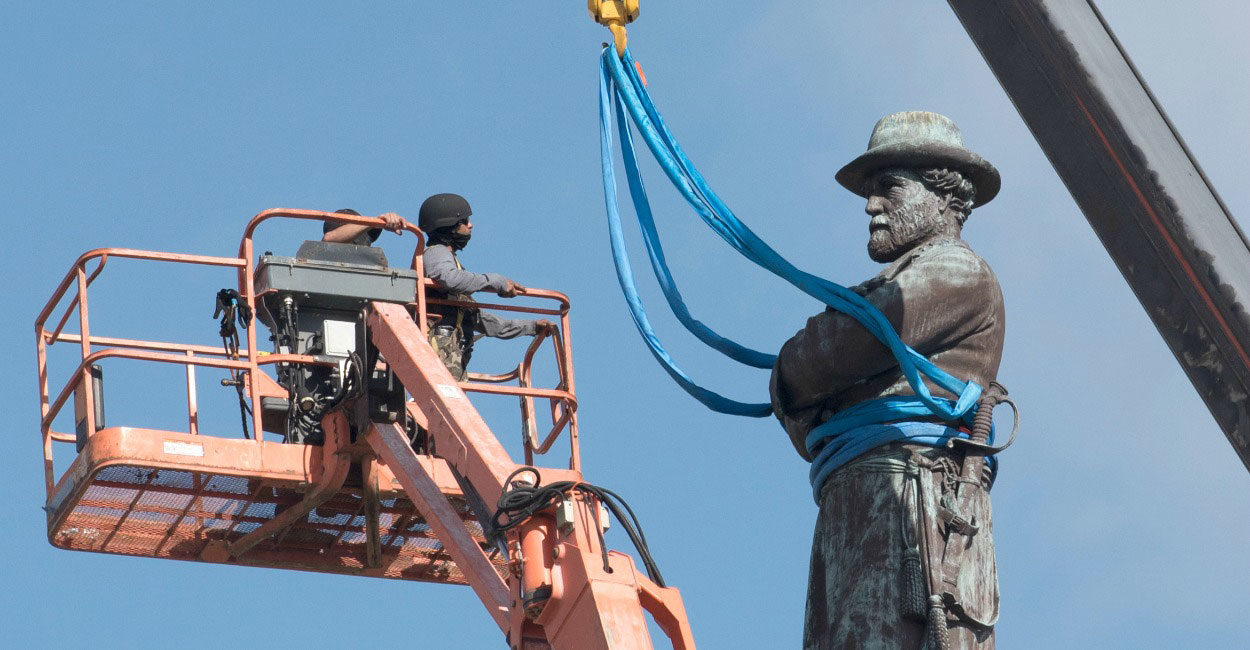
During a petty and cantankerous press conference Tuesday, Donald Trump stood between two golden elevators and said a series of terrible things, excluding the following: “George Washington was a slave owner. So was Thomas Jefferson. Where does it stop? Are we going to take down their statues, too?”
These were rhetorical questions – designed to trick America-hating liberals like myself to come out of the woodwork – but they were, in my opinion, fair. So to answer your query, Mr. President, here is my response, which represents only my views and opinions and not those of Cook St. Productions, a comedy troupe that’s anywhere from 0 to 75% racist:
YES! Please! Oh my god- can we? I am so serious right now, let’s do it. Let’s take down Every. Single. Motherfucking statue we have in this country.
After everything that’s happened the past few days, I remain convinced that this would be a very healthy exorcise (sic) for Americans. It is time to make a clean break with Jefferson, Adams, Jackson, all of them. Thank you for the flag, thank you for the Constitution- really, you boys did a helluva job. You were also a tad shortsighted, and if I’m being totally candid, made kind of a fucking mess. You should try being a privileged white male in 2017 – oh don’t worry, it’s still the best – but we have information and empathy and…guilt. I have guilt.
So please, someone, hand me a rope, and let’s take these motherfucking statues down.
What’s the downside? Honestly, I’ve thought long and hard about this, and other than culture war and street violence, which I’m sure our President would quickly suppress should we follow this plan of his, why would we stop at Confederate statues?
The consensus, amongst people smarter than me, is “it’s a false equivalence,” and we know how goddamn exciting it is when we educated folk get to throw that term around. It’s true- Robert E. Lee and Stonewall Jackson do not represent the same skeletons that Thomas Jefferson and George Washington do. The former took up arms against their own country and the latter are heroes, first and forefathermost. And yes, Justin, you can be both hero and slave owner. Okay, maybe hero is too strong. But definitely…pretty….pretty important dudes who, did a lot, and should not necessarily be held accountable for the morality of the times.
[If I’m putting words into your mouth, I apologize. But, intellectual to intellectual, if you are unwilling to even broach this question of what white-guy-monuments we do and do not allow in our public spaces, simply based on a ‘false equivalence,’ I think your argument is lazy. You’re right: A does not equal B. But B is very close to A in the alphabet. In fact it is way closer than L, and also what are we talking about anyway these statues are symbols without fixed definitions- sorry.]
All Donald Trump implied, in the vacuum of that moment, was that taking down Confederate monuments is a slippery slope. And on that point, he is accidentally correct. History, despite its warts, cannot be seen with one eye shut.
We will start with the Confederates, sure. Those should have been gone in like ’09. Then, next weekend, we get rid of all monuments depicting slave owners. If you were planning a trip to D.C., you still have 8 days to visit the Jefferson Memorial, where you can explain to your son, one last time, how eloquent and how idealistic some rapists can be when tasked with creating the blueprint for our country. And then he’ll say “Mommy, does this unflinching stare at Jefferson’s complicated legacy retroactively contaminate his words ‘all men are created equal’?” and then you’ll say ’No’ and look away stoically, just hoping that a gull squawks so that you can re-direct his attention to a nearby pond.
I know what I’m suggesting is a little audacious, but so is not reckoning with our total past. What sounds better- correcting history in one cleansing, fell swoop, or just arguing the distinctions between George Washington and Robert E. Lee the next 5 years? I don’t know what either of those guys were like. Best as I can tell, both were generals who led a revolt, and thanks to hindsight, we evaluate their respective causes based on current morality. Washington won, Lee lost, and they both would be assholes today.
The problem is, Mr. President, we cannot just stop at the Emancipation Proclamation. My alt-left comrades and I need to remove every white-man-statue that pre-dates 1920, the year women were finally provided the right to vote. Take down your Lincolns, take down your…McKinleys. This is non-negotiable.
[Speaking of women’s suffrage, how did you whiff that one so bad, America? You’re like Trump tweeting after Charlottesville, just a total botch job. All you had to do was include ‘gender’ in the 14th amendment, but no, another three score of denying half the population their basic rights as citizens seems cool. We’re just a “young” country – we don’t know any better!]
Anyway, that should do it. Every statue of a pre-1920 white man, gone.
“The BBC reports today that the United States has commissioned the removal of all monuments and relics of their pre-democratic era, perhaps finally making good on the original, lofty promises that shaped their Constitution and bred rampant exceptionalism and obesity the past 200 years.”
Look, we can either do this now, in 2017, or skirt responsibility once again, and let your children do it in 2035. Because they certainly will not give a shit about Thomas Jefferson. They are good people. Better than us.
- Posted by Justin Tyrrell
- Computer Newspaper
- 0 Comment
Tell Someone Who Cares, Amy Adams
Every year there are a slew of acclaimed films released in theaters, generally near the holidays, that represent the “best” the medium has to offer. Sure, there are heaps of exceptions, in both directions, and loads of snarky qualifiers I could add – including, but not limited to, surrounding best with quotation marks – but it’s an assertion that’s more true than it is false, and that’s good enough. Also, I almost put quotes around acclaimed, holidays, and has, so you got off easy.
I like catching up on these films in the spring, at home, because who can find the time to go see them all in the theater when they look so sad and incredibly boring? Moonlight. Lion. Manchester by the Sea. Spotlight. Selma. Dallas Buyers Club. 12 Years a Slave. Seen ‘em all, think they’re all great.
Nevertheless, there is a certain type of artsy film that I never get around to seeing, and it’s hard to pinpoint the common pattern, other than that they have a certain Cate Blanchett-y quality to them. To translate: I’m a misogynist, or maybe just sexist, or best-case scenario, hopelessly biased.
People come up to me – on the street! – and say “Yo, what’d you think of Carol? Did you see Brooklyn yet? What about Jackie? Still Alice? You did not just shrug when I said Still Alice. I’m afraid to ask…. Wild? With Reese Witherspoon? Yes, that Reese Witherspoon-” and so on. I could make this joke forever. I almost made up a movie (The Last Geisha) to see if you’d notice.
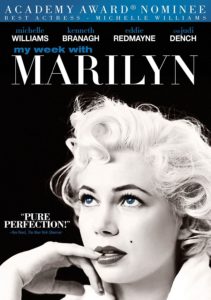 In the last 6 years, which is, ironically, how long I’ve been woke, there have been 30 movies nominated in the Best Actress field, and I’ve seen 12 of them. For some scale, over the same period, I’ve seen 21 of the Best Actor films. And while that difference may not sound significant, bear in mind that of the 12 female films I’ve seen, 6 of them still had a male protagonist, and the other 6 were either suspenseful (Gravity, Zero Dark Thirty), or the movie Joy, which I thought kind of sucked.
In the last 6 years, which is, ironically, how long I’ve been woke, there have been 30 movies nominated in the Best Actress field, and I’ve seen 12 of them. For some scale, over the same period, I’ve seen 21 of the Best Actor films. And while that difference may not sound significant, bear in mind that of the 12 female films I’ve seen, 6 of them still had a male protagonist, and the other 6 were either suspenseful (Gravity, Zero Dark Thirty), or the movie Joy, which I thought kind of sucked.
Part of this is not my fault, of course, because Hollywood is, like most institutions, inherently sexist. Some quick, depressing 2016 statistics: 29% of movie protagonists were female, and of the top 100 grossing films, just 4 were directed by women. People like to, rightfully so, go after critics, and voting bodies like the Academy, because their diversity (94% white, 77% male) is a fucking joke, but sheathing the pitchforks for a second – maybe it’s us? The Academy is not to blame for 71% of movies last year having a male protagonist. Someone’s at fault there – in fact a lot of people are, definitely the Academy now that I think about it – but consumers (52% of whom be women) are, too. Change the demand, you’ll change the supply. Did you know The Last Geisha made $0 at the box office?
In full, embarrassing disclosure: I spent the last few days creating a database of Best Actress winners cross-referenced with Best Picture winners, which I just found out an hour ago, of course already exists, and can be found in a much better publication called Newsweek. What I wanted to know was how many Best Actress winners were in films that also won Best Picture. And assuming that number is alarming and disporportionate, why, the fuck, is something as basic and pure and durable as storytelling, patriarchal?
Naturally, there are some easy answers here. Everything, including basic citizenry, was patriarchal until a century ago, and tradition takes time to untangle. Also, for thousands of years, before Netflix and the printing press, all we had were fireside stories, and the only compelling topics were war and murder, so yeah, from Homer to Shakespeare to Tarantino, if it bleeds, it leads, albeit not in the menstrual sense.
What I, and Newsweek, found is that over the past 50 Oscars, the ‘Best Actress’ was in the ‘Best Picture’ just 7 times. What Newsweek won’t tell you, because they want to be impartial, is that ‘7’ is mad charitable. Let’s throw some cold water:
2004, Hillary Swank, Million Dollar Baby. Clint Eastwood was top-billed, also nominated, and plus it’s a girl boxing. This I got to see!
1998, Gwyneth Paltrow, Shakespeare in Love. She’s the love interest of the male protagonist.
1991, Jodie Foster, Silence of the Lambs. She plays an FBI agent and obviously Anthony Hopkins also won for Best Actor.
1989, Jessica Tandy, Driving Miss Daisy. Morgan Freeman was top-billed, also nominated.
1983, Shirley MacLaine, Terms of Endearment.
1977, Diane Keaton, Annie Hall. She’s the love interest of the male protagonist.
1975, Louise Fletcher, One Flew Over the Cuckoo’s Nest. Apparently someone else was in this movie besides Jack Nicholson.
And that’s it. Of the last 50 Best Picture winners, only Terms of Endearment passes the sniff test as decidedly feminine. Want more proof? It is, by no coincidence, the only one of these 7 movies that I haven’t seen, and that’s because quote “it sounds very lame.”
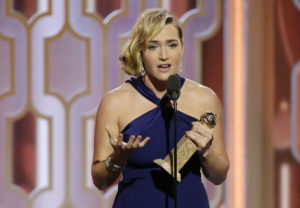
^not amy adams
What the hell’s the matter with me? Did I spring from the womb like this? Was this learned? I’ve never shot a gun, let alone thrown a punch, but here I am getting wet watching No Country For Old Men and The Departed? Am I 9 years old? Why, when someone asks if I’ve seen August: Osage County or Philomena or The Annette Benning Movie, do I express disgust, as if considering a female point-of-view on things is somehow commensurate to freebasing cooties?
Two more things. Then I got to go see Dunkirk in IMAX.
You have every right to question, and loathe, my possible motives in writing this. I’m a straight white male decrying representation in media, which is unfair, and also super low fruit. And I’m not looking to score points with women here, although who knows at a certain point, you know? Maybe some part of my biology thinks admitting gender bias will help me get laid. Sex is always a factor – the Best Actress movies I did see the past few years? Brie Larson, Room. Jennifer Lawrence, Silver Linings Playbook. Natalie Portman, Black Swan. Hot, hot, and hot. If it wasn’t for Ryan Gosling being so 24/7 sexy, I’d add Emma Stone in La La Land to that list.
No, what confuses me about this whole thing, is that I lack a gendered predisposition when it comes to other media. Bridesmaids and Girls are, in my estimation, the best comedies of the past 10 years, and when it comes to music, I straight-up require a female lead singer at this point in my life.
So given that, what is it about serious, female films that I find so vile? Do I, and this is a serious question that my lizard brain is asking, assume that Meryl Streep movies are probably just a lot of crying? Like I’m okay with emotions, so long as it’s Casey Affleck who’s tastefully keeping them at bay, i.e. fighting the good fight? Or, am I like the Oscars, and I think films like The Help and Blue Jasmine are excellent, but also fatally flawed because they seem ‘cute’ or ‘small,’ or generally just have a lower ceiling than the male equivalent?
Anyway. I apologize. For my implicit bias, both past and future.
Hey, while I have you, why did 42% of women vote for Donald Trump last November? Was it taxes? Race? I bet it’s race.
- Posted by Justin Tyrrell
- Computer Newspaper
- 0 Comment
My Idols Hate Cell Phones
Last week, I saw an article about Paul Thomas Anderson re-collaborating with Daniel Day-Lewis for a film set to release in 2017. I clicked, because I was curious, because he’s our best living filmmaker. There were very few details about the plot (classic P.T.), other than ‘set in the 1950s fashion world.’ I thought, “come on, man – another period piece?”
Then today, I realized something. None of my film heroes: Anderson, Wes Anderson, and Quentin Tarantino, have ever set a movie in the modern, digital age.
For some context, I grew up in the ’90s. I make films kind of. Using those two pieces of information, it is less than shocking that Wes Anderson, Paul Thomas Anderson, and to a lesser extent, Quentin Tarantino, are very dear to me. When I was 11, the one-two punch of Reservoir Dogs and Pulp Fiction introduced me to cinema that felt hip. Then, I saw Bottle Rocket and Rushmore, which opened my eyes to stylized comedy. By the time I was 17, and freshly in love with both Boogie Nights and Magnolia, my formative years were set. I learned what the word ‘auteur’ meant and permanently put their faces next to the definition. What I’m saying is I like them. That’s what I meant by saying ‘film heroes.’
But in the last decade, all of their films exist outside of daily, contemporary experience.
2007 – THE DARJEELING LIMITED – set on a train in India
2007 – THERE WILL BE BLOOD – turn of the century oil
2009 – FANTASTIC MR. FOX – cartoon about animals
2009 – INGLORIOUS BASTARDS – ww2
2012 – MOONRISE KINGDOM – 1950s New England
2012 – THE MASTER – post ww2
2013 – DJANGO UNCHAINED – slavery
2014 – GRAND BUDAPEST HOTEL – ww2 europe
2015 – THE HATEFUL EIGHT – post civil war
2015 – INHERENT VICE – the 70’s, man!
2017 – Untited Wes Anderson Animated Movie
2017- Untitled P.T. Anderson fashion movie
So, that’s 0 for 12. The last movie set in modern day was 2005’s The Life Aquatic, which was mostly at sea, but we’ll count it. But since then, nothing. No mention of e-mail. No reference to the Internet. Not a single cell phone. Maybe it’s a coincidence. Or maybe the present is just not that interesting, and these guys want to tell stories about all of history.
[I mean, it’s mostly World War II, and its subsequent fallout. Or it’s the goddamn ’70s – which, sorry to get off-topic, but why are there so many movies set in that decade? I’m not saying y’all weren’t groovy and cool or whatever, but as an era, it’s pretty fucking one-note.]
OK, but, here’s the crazier part. Like I said, they are 0 for 12 since 2005, but… from 1992-2005, 11 of their 12 movies were set in the present day. So what the hell’s going on, fellas?
Is it too easy to chalk this up to the Internet? And more importantly, is it sloppy to state that ‘the Internet basically started in, like, 2006?’ I don’t know. But I just asked Google and it told me ‘YouTube got big in 2006’ and ‘Facebook boomed in 2007,’ and ‘tablets/smartphones were a Thing in 2009,’ so let’s go with that. It’s an inexact estimate, but let’s just agree, from now on, that 2007 is basically when the Internet started to become what it is now, a decade later. (Awww our 10th anniversary is coming up, you guys! We should all get each other Apple watches.)
Now some counterpoints.
- It probably wouldn’t be good if these writer/directors did try to be ‘of the moment.’ You don’t want a laptop hanging out in one of Wes Anderson’s dollhouse sets. And you don’t want Sam Jackson watching YouTube clips in Tarantino’s next revenge movie.
- The goal of storytelling is to be timeless, and the more you incorporate modern technology in said story, the more likely it will become dated. Haha have you guys seen Zack Morris’ cell phone?
In truth, most movies and television, and probably books although I don’t read them – mislead the audience as to how much of our lives are spent on mobile phones. When characters text or take selfies or swipe or scroll, it usually feels like the writer is trying to ‘say something,’ which we can only assume is some overwrought point about device addiction. And even when that’s not the case, it’s just not good cinema. When characters talk face-to-face, or even on the phone, there’s a good chance that one of them will say something hurtful or revealing or generally dramatic. Texting, on the other hand, is calculated, and diluted.
[I think it’ll take some time, but eventually Hollywood will solve its text messaging problem. There will definitely will be some indie movie at Sundance in five years that has its entire story take place over text. It won’t ultimately be that good of a narrative, but we’ll laud it for being novel and imaginative.]
The point is, these guys aren’t alone. Art doesn’t always imitate life, and more often than not, it’s offering an escape from it. But the best art, the stuff we connect to, the stuff we can relate to, the stuff that gets deep down in your bones, does tend to imitate life. My favorite films of the past 5 years are Birdman and Her. The former takes place in the present, and seamlessly uses YouTube as a plot point, and references Twitter without coming off as desperate or tacky. And good for them, it takes some real Best Picture balls to take something like social media seriously; far too many shows and movies reference the Internet as if it’s some temporary, insignificant distraction, and not the one thing we can’t seem to live without. Her, on the other hand, is literally about this very relationship.
I’m not saying Wes, P.T., or Quentin should make a movie as centered around technology as Her. The degree of difficulty, as we’ve discussed, is very high. But who better to take on that challenge than three directors whose respective styles have become a little too predictable? It’s not like Django Unchained, The Master, Moonrise Kingdom, Inherent Vice, Grand Budapest Hotel, and Hateful Eight are groundbreaking efforts for these three. It’s time to embrace change, boys! It’s time to adapt!
Nostalgia is powerful, and the past is romantic. But if you dig deep enough, so is the present.
- Posted by Justin Tyrrell
- Computer Newspaper
- 0 Comment
How To Choose A President In Just 31 Days
*empties crate of clementines, places it on ground upside down*
*deep breath*
*gingerly stands on crate*
Hey everybody? Everybody, can you look up here? I have something I want to say.
What if I told you I could get the American people a new chief executive in just 31 days? The campaign, the primaries, the general election – all of it takes place in January, once every four years.
You seem cautiously interested, hashtag sounds like my friday night.
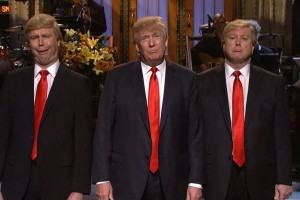 Donald Trump officially announced his candidacy on June 16th, 2015. So, 380 days ago. How much better would your life, and country, be if that year didn’t happen? One year of Trump, just wiped away. One year of him screaming “I’m great!” while we yell back “You suck!” and him saying “Takes one to know one!” and then everyone claps because nonsense is compelling.
Donald Trump officially announced his candidacy on June 16th, 2015. So, 380 days ago. How much better would your life, and country, be if that year didn’t happen? One year of Trump, just wiped away. One year of him screaming “I’m great!” while we yell back “You suck!” and him saying “Takes one to know one!” and then everyone claps because nonsense is compelling.
‘Ok we get it, guy-on-tangerine-box … how’s it work?’
Well, let’s imagine a reality where it’s currently July, 2016, and we still don’t even know who’s running for president in the upcoming election. Obama will leave in late January 2017, and we haven’t the faintest who will be taking over. OK, so remain in that fantasy, and now fast-forward 6 months to:
January 1st, 2017: National Press Conference Day!
A collection of politicians, mostly white males, will hold press conferences across the country to announce their candidacy, and not a goddamn day sooner. Let’s see, we got Hillary, that’s expected … umm Bernie Sanders from Vermont, and ok wow – Donald Trump, Jeb Bush, Ben Carson, Ted Cruz, Marco Rubio, Mike Huckabee, Chris Christie, John Kasich. Good luck, everybody.
[Note to liberals, whom I expect outnumber the conservatives in this audience: That means 95% of you wouldn’t know Bernie from Adam at this point in the election cycle. Which is a drag, because we can all agree that if voting was just ‘what candidate gets it,’ Berns would’ve locked up this presidency by President’s Day. Unfortunately, he’s made social media unlivable, and as a registered voter, I got to dock him points for that. Two weeks of The Bernie Revolution is all anyone really needed in the end. It’s just enough time to plant a seed – you feel me, District 12?]
But picture it! New Year’s Day and everyone’s just hungover watching press conferences! WOO HOO IT’S PRIMARY SEASON, Y’ALL!!!!!
January 15th, 2017: All-the-Primaries Day!
Every state holds its primary election the same day, similar to how we handle the general election, in that everyone votes, and then a bunch of people count the votes, and then the candidate with the most votes is officially the party’s nominee. It’s not at all super intuitive. And just think – we don’t have to hear about who’s going to ‘take Nevada ’ in a slow news week ever again!
So a bunch of people announce their campaign on the 1st, we have it narrowed down to two presidential candidates by the 15th. I hope two weeks was enough weeks for the 35% of you people-who-vote-in-primaries to choose your favorite politician amongst the buffet.
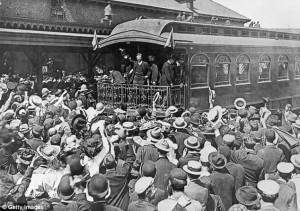 [Why do we (and don’t answer ‘money’) currently have every candidate go state-by-state, for six months, giving variations of the same speech? I mean, this isn’t 1890, there aren’t presidential hopefuls exclaiming things like ‘My god Oregon, what beautiful trees you have! Vote McKinley!’ from the back of a locomotive. As a voter, I don’t care if they physically visit my state. There’s television, there’s the fucking Internet – I’ll get the information I need. Or maybe I won’t, and that’s fine, too. I’m voting for Hillary in November and I legitimately have not read or heard a single thing she’s said over the past year.]
[Why do we (and don’t answer ‘money’) currently have every candidate go state-by-state, for six months, giving variations of the same speech? I mean, this isn’t 1890, there aren’t presidential hopefuls exclaiming things like ‘My god Oregon, what beautiful trees you have! Vote McKinley!’ from the back of a locomotive. As a voter, I don’t care if they physically visit my state. There’s television, there’s the fucking Internet – I’ll get the information I need. Or maybe I won’t, and that’s fine, too. I’m voting for Hillary in November and I legitimately have not read or heard a single thing she’s said over the past year.]
*takes a deep breath, picks up a clementine, and begins unpeeling it*
January 25th, 2017 : Convennnnnnntions!!!!!!!
Because tradition, motherfucker.
Yeah, of course they’re not going to tour the entire country. They’ll visit the swing states, and the rest of us will tune in via satellite. We seriously don’t need 50 pep rallies, especially when only 57% of Americans vote, and none of them are undecided when they attend these sacred summits of democracy.

31 days, from press conference to White House. Under our current system, that same process takes 18 months.
18 months to campaign/vote/campaign/convention/vote/inaugurate. We, the electorate, apparently require 1.5 years to hire someone for a job that lasts only 4, but to us it’s basically only 2.5 years because the final 1.5, or 38%, happens while our back is turned, already looking ahead to the next election cycle. Americans are like Mel Kiper, Jr. – we go from draft to draft without ever watching a snap of the actual NFL season.
Speaking of Obama – what’s his 44th ass been up to ? I’m sincerely asking, I haven’t heard anything about this administration in over a year. Seems like he’s probably been on cruise control since Trump emerged from Hell, and my man still has 7 months left in his term, which seems like an absurd stretch of time for one person to run a very powerful country without public scrutiny or oversight.
If you want to hear more, let’s go somewhere private. This farmer’s market isn’t safe.
*weird silence*
*falls off crate*
- Posted by Justin Tyrrell
- Computer Newspaper
- 0 Comment
Star Wars, Harry Potter, and ’80s Babies
Just a few weeks ago, the big and powerful Disney Corporation released a new Star Wars, dropping the mic on all things pop culture. The fact that it’s (a) objectively a great movie, and (b) making heaps of cash, means we need to clarify what Star Wars is, and what it isn’t.
What it is: the most famous Story of our times, therefore probably the most important
Below is a list of the biggest movies since 1966, inflation adjusted, so it’s based sheerly on tickets sold.
Five of the seven Star Wars movies are in the Top 10, which is insane. More people saw Phantom Menace, the crappiest Star Wars installment, in the theater than they did Jurassic Park, Jaws, Forrest Gump, Back to the Future, Raiders of the Lost Ark, or any movie about superheroes.
If commercial appeal doesn’t impress you, maybe gradual brainwashing will.
There are over 270 movies and tv shows (according to nerds) that just make reference to Star Wars, 262 excluding Kevin Smith. Think about it, that’s almost 300 other stories that all found time within their own respective narratives to point at an entirely different story. We are not just all familiar with Star Wars, we seem to be incapable of creating a world where it doesn’t exist.
Luke, I am your father. May the 4th be with you. Spaceballs.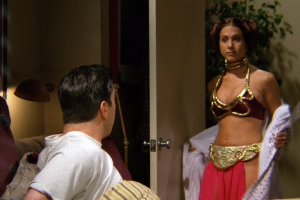 The phrase ‘jedi mind trick.’ President Reagan calling the Soviets the ‘evil empire.’ Even Family Guy, a show known for its commitment to irreverence and blasphemy, did three hours of content that was just the Griffin family…in the Star Wars movies. The onslaught of information has been relentless since the first installment was released in 1977, coming at us from every different direction, at every possible speed. But it’s okay because the media (and I guess, the world) is effectively run by 35-55 y/o white men, who were 3-23 y/o white boys when the original trilogy ended in 1983.
The phrase ‘jedi mind trick.’ President Reagan calling the Soviets the ‘evil empire.’ Even Family Guy, a show known for its commitment to irreverence and blasphemy, did three hours of content that was just the Griffin family…in the Star Wars movies. The onslaught of information has been relentless since the first installment was released in 1977, coming at us from every different direction, at every possible speed. But it’s okay because the media (and I guess, the world) is effectively run by 35-55 y/o white men, who were 3-23 y/o white boys when the original trilogy ended in 1983.
Which brings me to
What it isn’t: a big deal to those of us born post-1980
Think of Star Wars as the Super Bowl of stories, or wait– maybe think of the Super Bowl as the Star Wars of sporting events. Either way, it’s a dope analogy. Stay with me.
Most Americans have seen the new Star Wars film, much like most Americans are going to watch, with varying levels of interest, the Super Bowl. But there’s a difference between the experience of casually watching the Super Bowl and the experience of being a fan of one of the teams involved, much like me being vaguely familiar with the characters and plot points from Star Wars is remarkably different from the ’70s babies whose nascent understanding of good (Luke, the Aryan-lookin fella) and evil (Vader, dude in the black hat) was indelibly shaped by the Star Wars mythos. They never had a choice; you got to root root root for the home team.
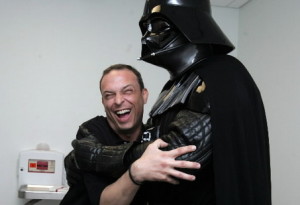 Don’t get me wrong, Star Wars is often, and accurately, advertised as a ‘cultural phenomenon,’ and the fact that that’s not hyperbole is a testament to its appeal across all ages. But have you ever tried having a rational, critical discussion about Star Wars with someone born in the 1970’s? It’s like asking someone born in a monastery why they became a monk. Seriously, you should try it. Find someone that looks to be around 40, introduce yourself, and then call Boba Fett ‘overrated.’ Enjoy the emotional show that follows!
Don’t get me wrong, Star Wars is often, and accurately, advertised as a ‘cultural phenomenon,’ and the fact that that’s not hyperbole is a testament to its appeal across all ages. But have you ever tried having a rational, critical discussion about Star Wars with someone born in the 1970’s? It’s like asking someone born in a monastery why they became a monk. Seriously, you should try it. Find someone that looks to be around 40, introduce yourself, and then call Boba Fett ‘overrated.’ Enjoy the emotional show that follows!
For people of a certain age, Star Wars is not good, nor bad, it just is.
Which brings me to Harry Potter.
I have noticed, and this is going to sound like the most obvious observation in an essay full of obvious observations, that the generation born after me (i.e. 1990’s/2000’s) loves Harry Potter. There are also plenty of people my age who echo that sentiment, but it was at least a choice they made. For people currently 10-25 years old, Harry Potter was at one point an inescapable facet of childhood identity; it’s in their bones.
In other words, Harry Potter is not good, nor bad, it just is.
It’s been written about before, but the parallels between the world of Star Wars and Harry Potter are too clean to be wholly accidental. Like Luke Skywalker, Harry was raised on the outskirts by his aunt and uncle, only to be rescued by a magical, bearded man, who says something like ‘Hey, your destiny is to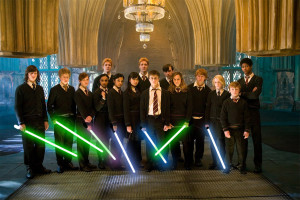 become very special, your Dad was also very special, so come with me and meet all your new father figures.’ Soon Harry learns that he has access to mystical powers, which can be used for good or evil, and he’s the only hope against the embodiment of the latter, i.e. Voldemort, e.g. Vader. So he teams up with his extremely qualified and attractive female friend, as well as a brave-but-in-over-his-head male companion, only to watch their romance blossom as he continues the hero’s journey alone. It’s an epic story full of memorable characters, huge stakes, and constant moral struggle– everything you need to unite an entire generation of children under one storytelling roof.
become very special, your Dad was also very special, so come with me and meet all your new father figures.’ Soon Harry learns that he has access to mystical powers, which can be used for good or evil, and he’s the only hope against the embodiment of the latter, i.e. Voldemort, e.g. Vader. So he teams up with his extremely qualified and attractive female friend, as well as a brave-but-in-over-his-head male companion, only to watch their romance blossom as he continues the hero’s journey alone. It’s an epic story full of memorable characters, huge stakes, and constant moral struggle– everything you need to unite an entire generation of children under one storytelling roof.
It’s easy to forget how immensely popular the Harry Potter franchise was, mostly because the story resolved itself several years ago, and because what the hell have you done for me lately, wizard boy? But starting with the first book being published in 1997 and then the final film being released in 2011, there was a 15-year reign of consistent, celebrated, Harry Potter information shoved in everyone’s face. While the quality of the eight Harry Potter movies remains to be agreed upon, the books are unassailable in their cultural importance.
Here’s a list of the top 16 books sold since 1900.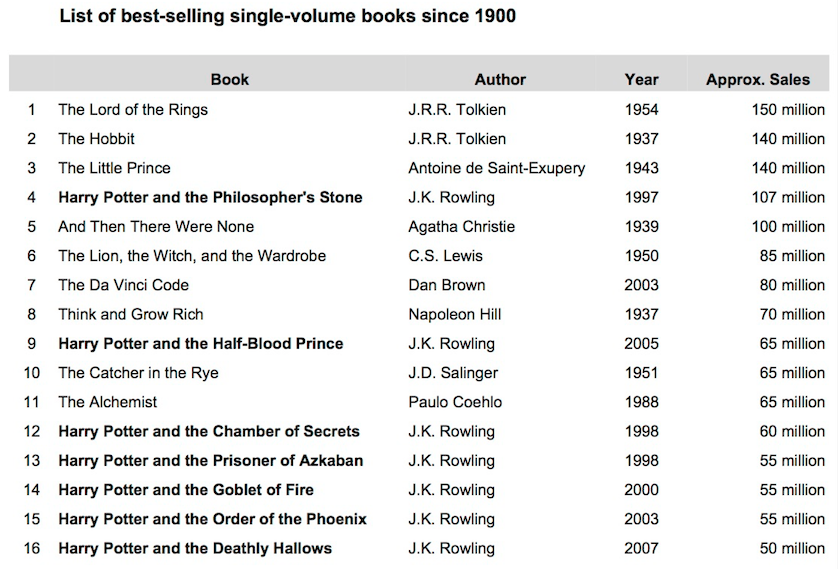
Seven of them are Harry Potter. It’s the bestselling series of all-time, partly because the books were translated into 73 different languages, which only further crystallizes how freaking famous the story of Harry Potter is. You could hop on a conference call right now with a Belgian girl and an Indonesian man and chances are the conversation would be uncomfortable until somebody brought up quidditch.
What’s compelling is the two different paths these franchises took to pop culture domination. The original Star Wars was groundbreaking, but it also arrived during an era of entertainment where there wasn’t much else to obsess over. Forget about there being no Internet, there wasn’t even cable. It just steamrolled every other story, and then just ‘put it in neutral’ for 35 years because the entire generation wouldn’t shut up about it. Harry Potter, on the other hand, has strong claws because it included both books and movies, and took much longer to tell its story. If you were born in 1998, Harry Potter was a bedtime story read to you at night, then you became literate enough to read them on your own, all the while making an annual trip to the movie theater to peep the latest Radcliffe joint and see how ‘Hollywood screwed it up.’
Like Star Wars, Harry Potter is not just a well-oiled machine, it’s completely self-sustaining. It’ll remain relevant throughout our lifetime because once upon a time it forced millions of people, during their 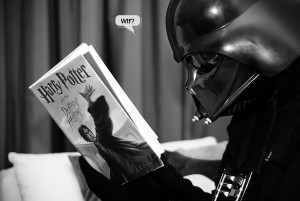 formative years, to understand Good, Evil, and all the other archetypes that epic narratives typically instill. They’ll do a few spin-off movies, then maybe a prequel from Dumbledore’s perspective, then the requisite re-boot, then maybe J.K. Rowling has a nervous breakdown because Harry Potter fanatics don’t approve of the direction the franchise is headed, only for J.J. Abrams, Jr. to take over in 2035 and release a brand new installment called Harry Potter: The Wand Awakens and it will break box office records and Justin Tyrrell, Jr. will write an argumentative essay about how Harry Potter is, without argument, the most famous story of our times.
formative years, to understand Good, Evil, and all the other archetypes that epic narratives typically instill. They’ll do a few spin-off movies, then maybe a prequel from Dumbledore’s perspective, then the requisite re-boot, then maybe J.K. Rowling has a nervous breakdown because Harry Potter fanatics don’t approve of the direction the franchise is headed, only for J.J. Abrams, Jr. to take over in 2035 and release a brand new installment called Harry Potter: The Wand Awakens and it will break box office records and Justin Tyrrell, Jr. will write an argumentative essay about how Harry Potter is, without argument, the most famous story of our times.
Which brings me to Me.
Well not me exactly, but those of us born in the ’80s; too young for Star Wars, too old for Harry Potter. We did not have a huge, meaningful, comprehensive epic that ticked all the boxes like those other two did. Nothing that permanently influenced the way we think.
If you disagree, let’s review the candidates.
Lord of the Rings
Because of its indisputable success, astronomical scale, and Good vs. Evil center, the Lord of the Rings  saga is the best parallel to Star Wars and Harry Potter. Including the magical bearded man who visits an asexual hero on the outskirts and says “you have been chosen because of your lineage, and you can save the world if you abstain from evil.”
saga is the best parallel to Star Wars and Harry Potter. Including the magical bearded man who visits an asexual hero on the outskirts and says “you have been chosen because of your lineage, and you can save the world if you abstain from evil.”
But the timing isn’t quite right. The books were written 70 years ago, and the movies (though 10 hours of total running time) were all released in a two-year window from 2001-2003, when my peers and I were grizzled teens of 13-19 years old. If the three Lord of the Rings movies were released, for example, in 1991, 1993, and 1995, respectively, we’d have our answer.
Jurassic Park
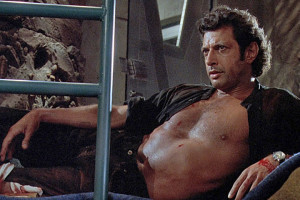 Definitely the most important movie event of my childhood, I didn’t know a single person in 1994 that had not seen it twice in the theater. Even today I manage to hear the Jurassic Park theme song ten times a year. It is the only candidate here that received the same unanimous love as Star Wars did in 1977.
Definitely the most important movie event of my childhood, I didn’t know a single person in 1994 that had not seen it twice in the theater. Even today I manage to hear the Jurassic Park theme song ten times a year. It is the only candidate here that received the same unanimous love as Star Wars did in 1977.
But the subsequent sequels are basically garbage when compared to the original (we call it The Matrix problem), and ultimately that’s because the size and breadth of the Jurassic Park story is minor compared to Harry Potter and Star Wars, which have too many memorable characters and plot points to name. Jurassic Park is an outstanding two-hour story, but it’s no epic.
Batman
This is an interesting wild card because Batman (1989) and 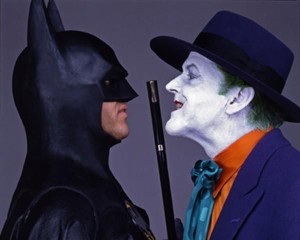 Batman Returns (1992) are two well-made, popular films that indoctrinated millions of kids my age to ‘Hero’ and ‘Villain’ mythology. But I’m not sure we can lay claim to these movies as our own — Batman was on television before we were even born, and the movies were eventually perfected by Christopher Nolan and Heath Ledger. Batman was important to a lot of people, but by no means everybody.
Batman Returns (1992) are two well-made, popular films that indoctrinated millions of kids my age to ‘Hero’ and ‘Villain’ mythology. But I’m not sure we can lay claim to these movies as our own — Batman was on television before we were even born, and the movies were eventually perfected by Christopher Nolan and Heath Ledger. Batman was important to a lot of people, but by no means everybody.
The Disney Renaissance
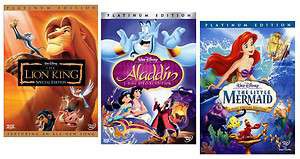 I only recently learned that ‘The Disney Renaissance’ is a thing, but if you don’t know, it refers to The Little Mermaid, Aladdin, and The Lion King, which were released from 1990 to 1994. Holy shit, right? What a run! For people born in the ’80s, these three movies are central to the fabric of their being.
I only recently learned that ‘The Disney Renaissance’ is a thing, but if you don’t know, it refers to The Little Mermaid, Aladdin, and The Lion King, which were released from 1990 to 1994. Holy shit, right? What a run! For people born in the ’80s, these three movies are central to the fabric of their being.
That being said, they are cartoons. And three different stories entirely.
Saved by the Bell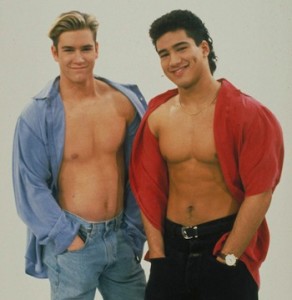
This is the most pathetic idea I have ever entertained, but maybe Saved by the Bell is our Star Wars. I don’t know anyone my age who wasn’t raised by it, who doesn’t still have a debilitating attachment to Bayside lore. My Facebook feed has not recovered from that time last year when the cast re-united on Fallon.
Oh, you think Han Solo’s cool? Get outta here, we had Zack and Slater. Princess Leia is a strong female character? Well, Saved by the Bell had three of those- one hot, one smart, and one diverse. My man Belding personified ‘wisdom’ more than Yoda ever did, and Screech can out-cockblock C3PO any day of the week.
I feel strangely good about all this. There’s a chance I’m grasping here, but I just can’t think of another story that imprinted so much morality and so many archetypes on ’80s babies as Saved by the Bell did. It’s been over 20 years and we still can’t stop referencing it.
Maybe I’m wrong, but we’ll never know. It’s like that old-ass muppet always says, “The enemy of objectivity, nostalgia is.”
- Posted by Justin Tyrrell
- Computer Newspaper
- 0 Comment
Dawn Draper: The Search For TV’s First Female Antihero
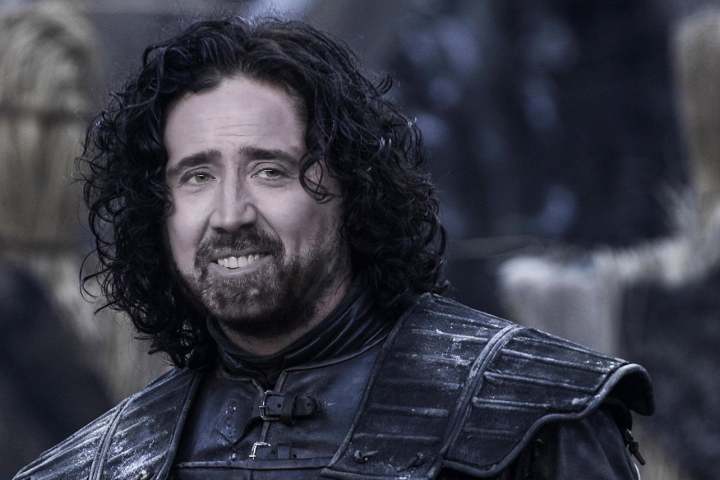
oh my…
Who is your favorite Game of Thrones’ character? Actually, hold up, let me guess. I bet it’s Tyrion. Wait, no Arya? Actually, on second thought, it doesn’t matter ‘cause Screencrush did a complete ranking for you. Here’s your top five:
- Arya Stark
- Jaime Lannister
- Sandor “The Hound” Clegane
- Tyrion Lannister
- Brienne of Tarth
Now, put on your most socially-progressive thinking cap (Gloria Steinham’s slouchie, if you have it), What do you notice? There are 2 full-sized men on the list above, one dwarf (in Westoros, little people are still denigrated through the dominant lexicon), and two women. The women are heralded for their ability to survive in a world that makes their survival unlikely. They do so by pursuing violent revenge, which is a reflex to the brutality that has been thrust upon them by the creators of the dominant masculine culture. Put simply, they’re given credit for adopting the actions of the violent men that have wronged them, while maintaining (mostly) moral intentions. Like Arya and Brienne, Tyrion is forced to participate in a world that isn’t meant for him. Despite a voracious sexual appetite and a robust surname, Tyrion isn’t given the same deference as the other powerful men in Westeros. His tininess has effectively neutered him. In fact, the only one who seems to appreciate Tyrion’s gift for logic and diplomacy, is an actual eunuch.
So that leaves The Hound and Jaime Lannister. In [ned] stark contrast to the reasons we root for Brienne, Tyrion, and Arya, we applaud these men for the brief glimpses of decency they exhibit. Like a silly woman, the more time we spend with these men, the more we think they’ll change their ways, despite plenty of evidence that their humanity comes and goes. I know Jaime Lannister is a real knee-weakener so maybe you’ve forgotten this, but in the very first episode, he pushed a curious little boy out of a castle window while trading orgasms with his sister (a Lannister always pays his debts). Is it your fault that your second favorite Game of Thrones character is a murderous incestor? Not at all, friend! We’ve been conditioned to root for awful awful characters, you know, as long as that character isn’t a woman.
A lot has been made recently of television’s emergence as the new venue for auteurs. With The Sopranos, David Chase laid the tracks down for showrunners and writers to create fully-formed worlds with nuanced, complicated characters that are given the time and space to exhibit believable emotional arcs without shoehorning their story into three-act structures. In this medium, we’ve seen shows about all sorts of things, but they consistently focus on men that do despicable things. With Breaking Bad, Vince Gilligan actually set out to turn his protagonist from someone who elicits sympathy from the viewer into someone who could not possibly deserve that kind of sympathy, but that never totally happened. No matter what Walter White did – and he did some terrible things – viewers still rooted for him. In an interview with the Guardian, Gilligan said “I find it interesting, this sociological phenomenon, that people still root for Walt. Perhaps it says something about the nature of fiction, that viewers have to identify on some level with the protagonist of the show.”
This was a long-winded way of describing something that probably doesn’t need describing. Over the last twenty years, many of TV’s most significant shows focused on antiheroes, but more specifically, male antiheroes. The ever-extending tendrils of modern television have given rise to protagonists that are barely recognizable from the traditional network archetype, but I would suggest these shows have created a brand new archetype, for an antihero, that is potentially as restrictive a set of guidelines as the previous model.
So if the expansion of TV dramas has allowed for non-traditional protagonists, why are there no real female antiheroes? Well shit, before I get into that, I should probably create a fool-proof template to assess what makes a character an antihero, and apply it to make sure my assertion that no leading woman qualify is correct (spoiler alarm: it was!).
____________________________________________________________________________________________
Okay, so there are three obvious example of TV antiheroes: Tony Soprano (The Sopranos), Walter White (Breaking Bad), and Don Draper (Mad Men). These three shows are also widely considered three of the top four TV dramas of all time (The Wire, being the fourth, features two fringier antiheroes in McNulty and Omar). There are also countless examples of lesser shows attempting to mimic this trend: Frank Underwood (House of Cards), Vic Mackey (The Shield), Rust Cohle (True Detective), and Dexter (…Dexter). So let’s take a look at what these gentlemen have in common.
- They’re Good at what they do. Whether they’re a cop, a gangster, or a stuffed cowboy, they demonstrate an ability to do their job above replacement value. Walter makes the world’s best meth, Draper is New York’s most innovative ad man, Dexter is meticulous and careful in his serial killing, and I’m pretty sure Frank Underwood is the goddamn president now.
- They’re behavior is Selfish, and their primary motivation is self-interest. This is often demonstrated by impatience, and a roaming sense of empathy. Consider the inner monologue of Frank Underwood, and how that drives all his behavior.
- They’re Violent. This is less true for Don Draper than everyone else, even though he’s probably the most physically imposing of the group. The others use violence as means of solving problems, or expressing frustration. Even Walter White, who is the least physically equipped to deploy violence, effectively murdered a teenage girl and poisoned a little boy.
- They’re Liars, and the people who are most affected by their lies are those closest to them. This one covers romantic infidelity, which pops up a lot. Even Rust Cohl, who may possess the fewest antihero qualities, slept with his partner’s wife.
- They are Architects of the dominant culture within the show AND architects of their own destruction. This one is important, because there is a thin line between someone who acts badly when given a reason, and someone who creates their own reasons to act badly. Traditional protagonists are often forced to do things they wouldn’t normally do as a reaction to something that has been done to them. An antihero might initially cross some sort of similar threshold, but ultimately, that motivation fails to explain their behavior. Walter White starts selling meth so that has something to leave behind for his family after he dies, but that justification largely disappears in the first season when his friends offer to pay for his treatment. Before he became Don Draper, Dick Whitman was an abused orphan that possessed none of the swagger he would develop after stealing the identity of his Korean War captain (who blows up), so it makes sense that Dick crafted a whole new identity for himself. It makes less sense that Dick’s meek background justifies his constant infidelity, alcoholism, and penchant for emotionally abusing the women he’s close to. Tony Soprano is humanized because he sees a therapist and loves ducks, but he sure does kill a lot of people. What’s more, an antihero often supplies the action needed for other characters to react with similar depravity. Basically, they construct a world where their behavior makes sense, and others are forced to live in it.
- If the character was a real-life human that you knew intimately, you would think they’re A Bad Person.
By averaging out the scores of the [both] Computer Newspaper’ editors on a 1-10 scale (10 meaning they fully embody the trait), I’ve graded the following five antiheroes: Tony Soprano (The Sopranos), Don Draper (Mad Men), Walter White (Breaking Bad), Dexter (Dexter), McNulty (The Wire). I included McNulty, ‘cause The Wire is the shit, and I wanted someone to push the threshold between hero and antihero. Also, it’s important to remember that this range is intended to be applied to any protagonist — not just antiheroes.
****note: I’ve been told that Vic Mackey, from The Shield, is perhaps television’s greatest antihero, but I’ve never seen an episode, so it will be omitted.
Tony Soprano:
- Good At What They Do: 8
- Selfish: 8
- Violent: 10
- Liar: 9.5
- Architect: 8.5 (Tony was born into a family of gangsters, so his presumably there was never much of a threshold he had to cross in order to enter that world)
- A Bad Person: 8
total: 52.5
Don Draper:
- Good At What They Do: 10
- Selfish: 9
- Violent: 4 (sexually and emotionally abusive)
- Liar: 10
- Architect: 7.5
- A Bad Person: 7
total: 47.5
Walter White:
- Good At What They Do: 10
- Selfish: 9.5
- Violent: 9
- Liar: 10
- Architect: 8
- A Bad person: 9
total: 55.5
Dexter:
- Good At What They Do: 9]
- Selfish: 7
- Violent: 10
- Liar: 8
- Architect: 6
- A Bad Person: 6
total: 46
McNulty
- Good At What They Do: 8.5
- Selfish: 7.5
- Violent: 8
- Liar: 6.5 (In Season 5, McNulty creates a fictional serial killer)
- Architect: 7 (See above. The ends justify the means baybay)
- A Bad Person: 3.5
total: 41
All five characters scored over 40 points, so conservatively, we’ll set the mark for a character to be considered an antihero at 35.
____________________________________________________________________________________________
The Ladies
When considering which female protagonists from television might be considered antiheroes, it’s immediately clear the pool of potential candidates is much smaller. While doing research for this article, I found the following characters described as antiheroes: Nancy Botwin (Weeds), Carrie Mathison (Homeland), Elizabeth Jennings (The Americans), Piper Chapman (Orange is the New Black), and Hannah Horvath (Girls).
Nancy Botwin
To be completely transparent, I didn’t make it through Weeds (because, you know, it’s not very good), so perhaps I’m not equipped to make a full assessment, but The Computer Newspaper is in the business of selling computer newspapers, not researched hypotheses. On the surface, Nancy has a lot in common with Walter White. She sells drugs to support her family, but that’s pretty much where the similarities end. She’s a single mother who begins selling weed after her husband’s death leaves her in overwhelming debt. I mention this because this remains her motivation throughout the run of the show. Unlike Walter White, Nancy’s incentive to operate in an illegal industry is fueled by her desire to provide for her children. This is an inherently unselfish motivation. She is not violent, and is never portrayed as a bad person. Most importantly, she is not the architect of the depraved world she’s operating within.
- Good At What They Do: 8
- Selfish: 3
- Violent: 3
- Liar: 5
- Architect: 5
- A Bad person: 3
total: 27
Carrie Mathison
Another flawed show, Homeland’s protagonist is an agent for the CIA who is irrational, impulsive, and destructive. She’s also bipolar and is singularly motivated by the desire to protect her country from harm. Really, she’s more Jack Bauer than Tony Soprano.
- Good At What They Do: 6
- Selfish: 6
- Violent: 6
- Liar: 5
- Architect: 1
- A Bad person: 5
total: 29
Elizabeth Jennings
The only way Elizabeth would be considered an antihero, is when compared to her husband. She’s good at her job, which means she’s effectively violent, and she lies to pretty much everyone, but that’s where it ends. She’s motivated to protect her country (and her kids), and is constantly compelled to follow order — something an antihero would never do.
- Good At What They Do: 8
- Selfish: 2
- Violent: 8
- Liar: 5
- Architect: 2
- A Bad person: 4
total: 29
Piper Chapman
What a fish out of water!
- Good At What They Do: 5
- Selfish: 2
- Violent: 2
- Liar: 2
- Architect: 1
- A Bad person: 2
total: 14
Hannah Horvath
I found the inclusion of Hannah on these lists to be puzzling, and frankly pretty sexist. The resounding criticism of Girls is that none of the characters are likeable. I would argue against that, but either way, Lena Dunham seems uninterested in creating characters that the viewer is compelled to root for or against. Hannah is selfish, but not in a way that hurts others. She’s a good writer, but is constantly humbled by her peers. She lies, but mostly to herself. To call Hannah an antihero because she’s a 23 year old girl that reminds us of somebody we know and dislike, is reductive to what Dunham is attempting. Hannah is a contradiction – a selfish millennial who tries to do good, but only when people are watching. She’s as funny as she is exhausting, because that’s what people are like. If Hannah is an antihero, so is Larry David.
- Good At What They Do: 6
- Selfish: 9
- Violent: 1
- Liar: 4
- Architect: 6
- A Bad person: 4
total: 30
____________________________________________________________________________________________
So in this fool-proof system, none of the women mentioned come close to qualifying as legitimate antiheroes. That may be further proof there aren’t enough quality roles for women in Hollywood, or more troublingly, it may reflect a discomfort our culture maintains for seeing women behave in a way we’re unaccustomed to. Most of the women listed above act out of a maternal need to protect something bigger than themselves (country or family). When others are hurt by their actions, they often show remorse. The men described in this article are motivated by self interest. When others are hurt by their actions, they dismiss it as collateral damage. What’s interesting about this exercise is not just how few women qualify, but how audiences reacted to the women close to the male antiheroes. People hated Carmella Soprano, Betty Draper, and Skyler White for being affected by the behavior of their terrible husbands. If the roles were reversed, I doubt we’d vilify the husband of a cheating, murderous, female lead. TV’s first actual female antihero will act deplorably – not as a response to an evil thrust upon them (Jessica Jones), nor as the driving source of evil on the show (Cersei Lannister), but as a response to her own demons. The way television has evolved recently, I don’t doubt we’ll see this type of character soon. After all, it’s always darkest before the dawn…draper.
- Posted by Travis Lindner
- Computer Newspaper
- 0 Comment
Kanye West Should Kill Himself
I want to personally apologize for how callous the “Kanye West Should Kill Himself” headline reads. My editor talked me into it, and she signs my paychecks.
[I don’t actually have an editor, but man is my imagination progressive. A girl editor!]
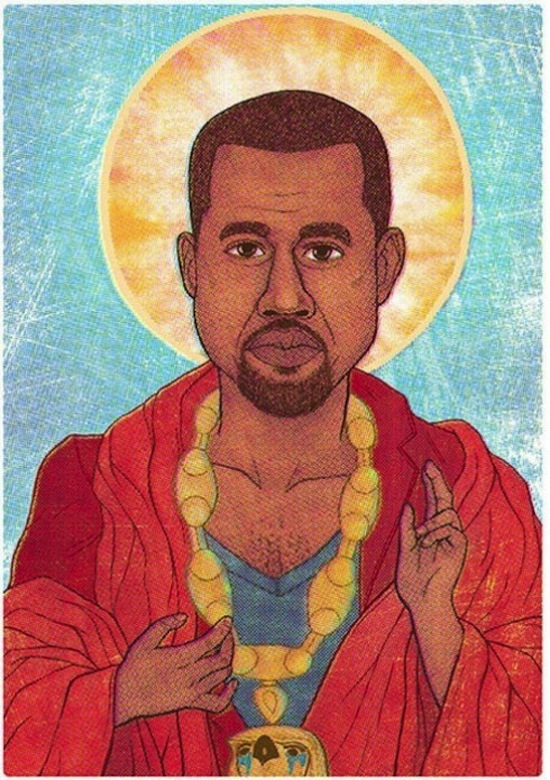 The truth of the matter is that I love Kanye West – the musician, not the public figure – and I do also believe that he should kill himself. And not in the hyperbolic, colloquial way that people my age say ‘kill yourself’ when they really mean ‘that sucks.’ No, when I say that Kanye West should kill himself, I fully grasp the intensity of that suggestion. But it descends from a place of love! And admiration! Not just for Mr. West as an artist with-a-legacy-to-leave-behind, but also for Yeezy as a concept.
The truth of the matter is that I love Kanye West – the musician, not the public figure – and I do also believe that he should kill himself. And not in the hyperbolic, colloquial way that people my age say ‘kill yourself’ when they really mean ‘that sucks.’ No, when I say that Kanye West should kill himself, I fully grasp the intensity of that suggestion. But it descends from a place of love! And admiration! Not just for Mr. West as an artist with-a-legacy-to-leave-behind, but also for Yeezy as a concept.
You see, when you’re an artist – or sometimes, merely a celebrity – it is in your best interest, professionally speaking, to die, so that your reputation as an artist, can skyrocket. And if we want to talk ideal circumstances, you should die while at your artistic peak AND have it happen via drug overdose, or by your own hands, or just anything along-and-between that murky spectrum. History will be very kind to you; she may even call you a ‘genius.’
I was not alive for the overdose deaths of Jimi Hendrix or John Belushi, but I have mourned Chris Farley, Heath Ledger, Amy Winehouse, and Phillip Seymour Hoffman, and contrary to current wisdom, they were not unilaterally considered ‘geniuses’ while they were living. All outstanding and talented performers, with many accomplishments, not the least of which includes dying before the world was ready.
But hey, do you know what presently-living artist does get called a Genius? Like, all the time? No, definitely not Banksy- but you’re close. It’s Kanye West!
I Know I Know he’s just the WORST, and a total cartoon asshole of himself, but- the man was literally introduced to us as a Genius. Just listen to “Lucifer,” a track Kanye produced, on Jay-Z’s The Black Album in 2003. In the beginning (0:15 in) of that song, Jay screams ‘Kan-yeezy you did it again, you a genius n-word!’ And if you can’t trust Beyoncé’s husband, who can you trust, really?
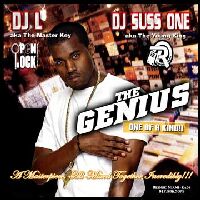 I have no interest in debating whether or not he is, in fact, a musical Genius, or what that even requires. We all understand that he’s extremely important. All of his albums (five solo + Watch the Throne) are regarded as some of the best of the 21st century, especially his last two (#1 and #8, according to Pitchfork). So we can at least agree that if mainstream music is allowed to have a Genius, Kanye’s a damn good candidate, not to mention one ostensibly at the peak of those powers. We can also agree, and this circles us back to my more central point, that if Kanye West was found dead in a hotel room in Hong Kong tomorrow, it would be 2016 before you stopped hearing what a freaking Genius he was.
I have no interest in debating whether or not he is, in fact, a musical Genius, or what that even requires. We all understand that he’s extremely important. All of his albums (five solo + Watch the Throne) are regarded as some of the best of the 21st century, especially his last two (#1 and #8, according to Pitchfork). So we can at least agree that if mainstream music is allowed to have a Genius, Kanye’s a damn good candidate, not to mention one ostensibly at the peak of those powers. We can also agree, and this circles us back to my more central point, that if Kanye West was found dead in a hotel room in Hong Kong tomorrow, it would be 2016 before you stopped hearing what a freaking Genius he was.
Now consider, for a moment, what your reaction might be upon hearing ‘Kanye West died.’ I would be stunned, nauseous, and so ready for more details. WHAT? No! Wait- HOW? … was it … uhh… did he … it wasn’t drugs, was it?
Because even though we know (and hate) an awful lot about Kanye, drug abuse is nowhere near that radar. Isn’t that strange? I mean- I’m sure he’s dabbled, possibly right before going on live television, but he strikes me as the type of dude who goes out and cares more about the perception that he ‘still gets fucked up’ than he does the reality. I’m sure, in his younger days, he tried every ratio imaginable of the champagne/cocaine/molly Neapolitan, but at this point it’s a combination that ‘bores him,’ and as far as painkillers or heroin is concerned, he lacks the discretion and, dare I say, humility, that a debilitating opiate habit necessitates.
So if Yeezy’s found dead, and it’s not drugs, and he wasn’t swallowed whole by his own ego, what would be your next guess? You could briefly imagine he was murdered, which is to say ‘caught up in a violent situation where shit happened,’ but again, I don’t buy it. His entourage is the Kardashian family, not Suge Knight.
This leaves us with the most fascinating thought experiment of all: suicide.
- It’s a far more exclusive club. He’d join the list of supposed geniuses like Kurt Cobain (shotgun), Ernest Hemingway (shotgun), Virginia Woolf (drowned), Elliott Smith (stabbed), and most recently, David Foster Wallace (hanged).
- As the above parentheses prove, the way you commit suicide is often just as compelling as the act itself. It’s one last performance, and given Kanye’s penchant for showmanship and creative control, I reckon he’d at least enjoy, on some level, designing every element of the production.
I will now open the floor for rebuttals.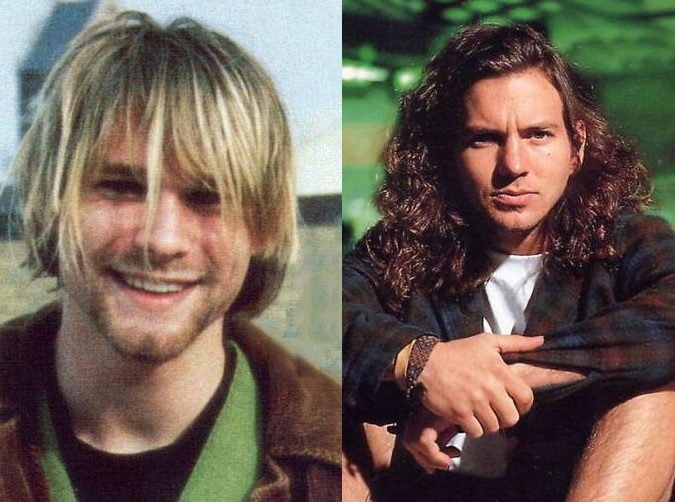
Looking at the list from #1, your first thought may be that Kanye doesn’t satisfy the typical requirements for ‘tortured artist’ that the others did. But that’s flawed logic, because committing suicide is precisely what earns you that label. What if Eddie Vedder was the one who shot himself instead of Kurt Cobain? Instead of lionizing Nirvana and making documentaries about Cobain’s grade-school artwork, we would be still talking about Pearl Jam’s ‘Jeremy’ video where the kid shoots himself in class. Do you think Eddie was telling us something back then? Was it a cry for help?
We use very simplified hindsight reasoning when we diagnose an artist as ‘tortured,’ or for that matter, someone who abuses drugs or opens fire in a movie theater. We wait until something happens, then we go back and look for the confirming evidence.
In that spirit, check out the chorus for “Runaway,” one of Kanye’s most beloved songs:
And I always find, yeah I always find something wrong……You been putting up with my shit for way too long…… I’m so gifted at finding what I don’t like the most…… so i think it’s time for us to have a toast……let’s have a toast for the douchebags, let’s have a toast for the assholes…
For a guy who’s made a lot of music you can dance to, Kanye sure does pack in a lot of negativity and self-loathing in the subtext! You could argue, and I have, that this is what makes him such a singular force in pop music. Kanye’s a living, breathing contradiction, strutting on the thin ice of his own self-awareness, always one misstep removed from full-blown narcissistic abyss.
I mean, does Kanye West seem happy? He’s greedy, and he’s intelligent, which are both antithetical to the concept. He also married Kim Kardashian, who – despite her intellectual flaws – is the most beautiful member of America’s royal family. So in addition to all the 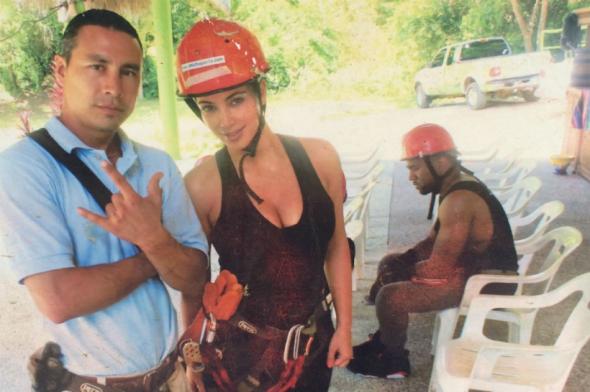 professional success and accolades, dude married a princess, and he’s still paranoid that Everyone’s against him.
professional success and accolades, dude married a princess, and he’s still paranoid that Everyone’s against him.
The second, and more interesting, rebuttal is this: “Kanye would never commit suicide because he loves himself too much.”
And you’re right! He’s not just conceited, he’s the type of the prick whose arrogance grows the more you poke it. He wants you to notice his ego. All we have to do is put a microphone near his face and he’ll gladly say anything just to cause a spectacle and be the center of attention. But enough about Trump!
Kanye West loves himself, and to an extent few can fathom, but since when is that mutually exclusive to killing yourself? Do you realize how lonely competitive self-importance is? Who are his friends? Jay-Z? Kanye probably spent the entire Watch the Throne tour keeping track of whose entrance got the bigger ovation. Who is Kanye’s family? He’s the only child of a single parent who’s now deceased, and he married a woman whose value is strictly sexual and therefore depreciating each day. He also has,
I’m told, an infant daughter, but no one likes a rich kid, not even a rich father.
My point is that Kanye West believes he has no equal. And if he ever stops to consider that there’s very little difference to being peerless and being completely alone in this world, it could lead to a total psychological breakdown. It’s up to him, at that point, to decide if he wants to funnel that spiritual crisis into whatever new album he’s working on, or if he wants to just…tap out, so to speak.
If he chose the latter, and committed suicide, it would give the whole Kanye West narrative a completely unexpected exclamation point. He’d have his twist ending, which I do think is something Kanye cares about. Across the world there would be candles lit and front-page tributes about an underappreciated, misunderstood Genius. Better yet, it would compel the millions of people who currently despise Kanye West to permanently conceal their criticism and just respect the art, if not also the artist.
In other words, we’d all have a Toast for the Douchebag.
- Posted by Justin Tyrrell
- Computer Newspaper
- 0 Comment
Grave New World
Sorry, but today we’re going to discuss Death and Social Media. Look, I wish we weren’t, but these repulsive concepts are finally colliding and I can’t help but rubberneck.
THREE KEY EVENTS over the past few months made me uncomfortably aware that a lot of us humans will now die as we lived — online. And seeing as how life is seemingly quite short, or as scientists say, “slipping away every second,” it’s best we just jump right in, hand-in-hand, and see where the rabbit holes take us.
1. Funeral Selfies.
As many angry people know, “selfie” was deemed Word of the Year in 2013 by the Oxford Dictionary. Apparently, the sacred crown that is ‘Oxford Word of the Year’ was soiled irreversibly by this decision, even if it was just the cold result of online usage analytics. But a selfie is a selfie — it’s not nothing. I learned this tautology from a riveting BuzzFeed list titled ‘The 23 Most Important Selfies of 2013.’ I really recommend it, especially #15, which is a dude taking a selfie in front of his teacher while she’s in labor.
When it comes to selfies, no category was more maligned than The Funeral Selfie, and with good reason—the pictures show an ugly new stage of the Internet’s growth. But not everything evolution throws our way is aesthetically pleasing. New forms of media and viral communication are constantly invented and adopted, we just never consider what will happen when Death gets his frozen, greedy hands on that shit.
The most definitive collection available is the Tumblr blog called “Selfies at Funerals.” The blog was created by Jason Feifer, a guy from Brooklyn (of course!), who got the idea in October, when he saw some picture online of a kid snapping a selfie at the Anne Frank Museum in Amsterdam. Naturally, he started a blog called “Selfies At Serious Places,” which got some traffic, but not as much as the spin-off, “Selfies At Funerals.” It’s worth noting, for the sake of rolling your eyes, that Feifer’s latest cultural monstrosity is “Selfies With Homeless People.” Get this man a podcast!
[In his defense, Feifer just capitalized on something that was already happening. As he explains it: “One of my favorite things about social media is seeing so many people, without knowledge of each other, do or say the exact same thing.” Look, he’s talking The Great Big Collective Unconscious, and Carl and I dig that. But he’s also 100% A-Hole if he considers his blog, ‘Selfies at Funerals,’ passive journalism.]
Here’s a highlight reel.
Is it just me, or has social media like, I don’t know, made us narcissistic or something?
Nah, that can’t be right. Let’s see what the Internet had to say about it. Check out the titles on these articles, all written this past December when the idea of funeral selfies splashed into the mainstream. I’ve chosen the most sensationalistic, naturally.
- “Selfies at funerals? Yes, people actually do that.” (CNBC)
- “Funeral Selfies are the Latest Evidence Apocalypse Can’t Come Soon Enough” (Huff Post)
- “Selfies at funerals are a trend now. Are we losing our humanity?” (Bustle)
- “Grave New World” (The Computer Newspaper)
Despite the uproar, there were defenders who came forward, including psychologists and grief counselors. There was even a funeral director who said something undeniably apt on television about it: “Since social media is how the younger generation relates with the world, it will likely be how the younger generation relates with death.”
[This seems like a good time to reference The Social Network. Justin Timberlake, as a coked-up Sean Parker rants, “We lived in farms, then we lived in cities, and now we’re going to live on the Internet!” Then the cops burst in and he’s arrested because it’s a phenomenal movie.]
 Then, there’s Obama. Back in December, the Danish prime minister took a selfie (for personal use, probably not Instagram) with President Obama at Nelson Mandela’s memorial service — an incident that brought millions of new eyes to the “Selfies At Funerals” blog and inspired all of those loud headlines above about the modern collapse of decency. The only two things worth mentioning here is that (a) the photographer eventually stepped forward in defense of Obama after seeing the narrative get out of control. He clarified the picture was taken during a point in the memorial service where music and conversation were ubiquitous, and the First Lady had been jocular with those diplomats just minutes before. And (b) Jason Feifer shut down his blog “Selfies at Funerals” shortly after because he felt like the meme had peaked.
Then, there’s Obama. Back in December, the Danish prime minister took a selfie (for personal use, probably not Instagram) with President Obama at Nelson Mandela’s memorial service — an incident that brought millions of new eyes to the “Selfies At Funerals” blog and inspired all of those loud headlines above about the modern collapse of decency. The only two things worth mentioning here is that (a) the photographer eventually stepped forward in defense of Obama after seeing the narrative get out of control. He clarified the picture was taken during a point in the memorial service where music and conversation were ubiquitous, and the First Lady had been jocular with those diplomats just minutes before. And (b) Jason Feifer shut down his blog “Selfies at Funerals” shortly after because he felt like the meme had peaked.
So here is the crux of the problem: funeral selfies ask that we be fair to something we don’t understand. Taking a picture of oneself at, or simply dressed for, a funeral, is a decision impossible for me to relate to, but I don’t want to categorically dismiss those that have as decorum terrorists and/or human garbage. Everyone processes death differently, and some not at all. Some prefer the privacy of their own prison mind; some may choose to externalize what they’re feeling onto the Internet. Some people can’t bear the sight of an open casket; some need to see a corpse before they can get closure.
[Let me save you a Google: there are pretty much no ‘open casket selfies’ out there. I already looked, and perversely, was disappointed by the lack of results — I guess I just wanted to see what true moxie looks like.]
As important as social rules and norms are for communication and efficiency, they are far from absolute. In fact, we know them to be quite relative, from culture to culture, sometimes from neighborhood to neighborhood. And when somebody dies, the floodgates open. We get reminded of the brevity of life and reflect on our own insignificance, digging for meaning. That’s when the whole system breaks down and the realities of existence trump the needs of society as a whole.
We still congregate for wakes and funerals because it makes sense to do so — we’re the most intelligent ‘things that die’ in the history of things that die. But these gatherings are, essentially, suggestions on what to maybe feel about mortality. Actual grief, and actual dread, have the creative license to run free, far past the fences we’ve erected.
2. The Facebook Dead
‘Funeral selfies’ is just a trend occurring on the margins — it’s easy to look at from afar, knowing full well you’ll never truly need to confront it. But the idea that you and all of your Facebook Friends will soon enough perish, right in front of everyone’s scrolling eyes, is a fact that requires no binoculars. You’re nose-to-nose with it.
It is estimated that there are 30 million profiles on Facebook that belong to individuals who have crossed over to the other side.
The reason this is in the news right now is an announcement made last week that Facebook will no longer restrict access to users’ profiles after those users pass away.  For the past several years, Facebook has offered, discreetly on a FAQ page, people the chance to “memorialize” a deceased user’s page. Memorialization entails that Facebook will leave the user on the website, but make said profile private, meaning only people that were Facebook Friends with the user when they were alive can see it moving forward. People can still interact with their dead Facebook Friend if they choose, posting whatever kind or sad sentiments they may have on the wall of the deceased. Tagging is no longer available, which is reasonable, but what if someone wants to tag their dead Facebook Friend in a meaningful picture they just took? Anyone who’s said “X was with us today in spirit” is familiar with this coping strategy.
For the past several years, Facebook has offered, discreetly on a FAQ page, people the chance to “memorialize” a deceased user’s page. Memorialization entails that Facebook will leave the user on the website, but make said profile private, meaning only people that were Facebook Friends with the user when they were alive can see it moving forward. People can still interact with their dead Facebook Friend if they choose, posting whatever kind or sad sentiments they may have on the wall of the deceased. Tagging is no longer available, which is reasonable, but what if someone wants to tag their dead Facebook Friend in a meaningful picture they just took? Anyone who’s said “X was with us today in spirit” is familiar with this coping strategy.
Frankly, all of this makes sense if you’re Facebook — I mean, what else, honestly, can we expect them to do, given that they have 1 billion users worldwide and did not invent heart attacks or car accidents — their only responsibility here is to follow the same tactful code we all do when someone we don’t really know dies: express condolences and offer help. They could just (and do, if asked) delete the profile forever, but that’s as romantic as zipping up a body bag. It’s not the way we generally handle death in the actual world, so why behave any differently in the virtual one. Facebook has enough acreage to fit a cemetery, therefore it follows they should provide our online presence a clean, blue plot.
 What CHANGED this week is this specifically this: memorialized user’s profile will no longer become ‘private’ upon death. Now, people that were not Facebook Friends with the deceased in life, can still search for that user, read their profile, check out their pictures, whatever would have been allowed while he/she was living. The company had very little choice, given that they were getting complaints from parents, who having tragically outlived their kids, could not see what wonderful memories and sympathies people were sharing on their child’s wall if they weren’t ever Facebook Friends.
What CHANGED this week is this specifically this: memorialized user’s profile will no longer become ‘private’ upon death. Now, people that were not Facebook Friends with the deceased in life, can still search for that user, read their profile, check out their pictures, whatever would have been allowed while he/she was living. The company had very little choice, given that they were getting complaints from parents, who having tragically outlived their kids, could not see what wonderful memories and sympathies people were sharing on their child’s wall if they weren’t ever Facebook Friends.
What’s interesting about this recent announcement is not the change in privacy policy itself. I am not sure what line in etiquette opening up profiles really even crosses, given that the boundaries of social media have yet to be drawn. What startled me is the way they framed it: “This [change] will allow people to see memorialized profiles in a manner consistent with the deceased person’s expectations of privacy. We are respecting the choices made in life.”
[High horse not pictured]
Then they added: “….there will be more changes in the next few months as we continue to think how best to help people decide how they want to be remembered and what they want to leave behind for loved ones.”
So …………. what the fuck, am I going to have draw up a Facebook Will soon? Is that seriously an e-mail I’m going to get in 2015? Some estate planning form letter that says,
Dear Justin, Death is a ghastly debt we all must pay. As troubling as that fate may seem to you, now is not the time to lose tears over spilled milk. We need to talk Facebook Will. Is it your wish that we, Facebook, upon your untimely exit from this world, bequeath all of your Likes over the years to your closest-living-acquaintance-from-high-school? And what of your profile picture? What mobile upload would you like to be your one visual calling card for eternity? We recommend choosing something where you look happy, but not intoxicated. Lastly, would you like us to enroll you in our Ghost Post program? We basically just write ‘Happy Birthday from beyond the grave!’ every year on your Friends’ walls. Sucks about existing, Zuck 🙁If you think the above is embellished for the purposes of morbid humor, I implore you to visit If I Die. Net, which already offers a third-party application for Facebook that sends ‘trustees’ a pre-recorded Goodbye video after you kick the ‘ol bucket. Watch the 1 minute pitch video below.
I don’t know about you, but cartoon clouds and British voiceover ALWAYS put me at ease. Spoiler Alert, my Goodbye video is going to be just me waving to the camera without saying a word for the whole minute, with ending credits that just say “Avenge my death at your leisure.”
No matter what further actions Facebook takes regarding the sudden undertaker role they have in our lives, they are right to be prepared. 30 million-and-counting have died in their arms, and it probably scares the shit out of them as much as it does us; fear of death’s in our genes.
But should I die tomorrow, my online remains will need to be addressed. I have an account with Gmail just like I do with Mastercard. I only hope that when my body stops working — you know, like a battery you can’t re-charge, and everything I know and love is gone — my final thoughts are not regretful ones, and furthermore have nothing to do with privacy settings on goddamn Facebook.
3. The Deathbed Live-Tweet
What Facebook does, for the dead and grieving, is perfectly civil. It’s one of the first newspapers I read every morning, so it’s natural they’d have an obituary section, and I reserve the right to avoid that if I find it depressing. Twitter, on the other hand, is less regulated. It provides a solicited entrance into people’s brains, and that access always yields messy results.
Last week, Laurie Kilmartin, a writer on Conan, became famous for live-tweeting the last days of her 83-year-old father’s death. It wasn’t something she ever announced and it was not done for publicity, despite the fact that Kilmartin ended up quadrupling her Twitter following by the end of it. She just kept writing, and I suspect it is because she needed to.
[Surrounding our Dad with love and sarcasm.]
As you can gather, the tweets are honest, morbid, sarcastic, sweet, anything within the breadth of human emotion. In lesser hands, the whole enterprise could have dovetailed and the Internet would have let her know that no one was laughing. But she’s a professional comedy writer, and it showed.
She continued tweeting 20-40 times a day, and social media took notice when Patton Oswalt called attention to her work, re-tweeting several to his 1.6M followers.
At Oswalt’s urging, the whole project went viral and soon news outlets had to decide what to do with it; there are no pre-established norms for this sort of thing, so really, we all had to decide. And unpredictably, given that it’s the Internet, the public supported her. Scouring as I have, most coverage has been extremely laudatory, calling it ‘brave,’ and ‘healthy,’ and in true 2014 hyperbole, ‘worthy of a Pulitzer.’
Undoubtedly, there are some people out there on the Internet who disapproved, and maybe you’re one of them, and frankly, maybe I am. It would have been easy to reprimand Kilmartin because (a) we prefer the subject of death to be kept beneath the floorboards, and (b) live-tweeting someone’s final waking moments, or rather the instinct to do so, is a challenge of empathy. But lo, behold: we didn’t freak out. It was as if we all saw what was happening, scanned the room to see how everyone else was reacting, and then someone broke the tension with “I mean, yeah, a lot of people turn to humor to cope with the death of a loved one.” Then we all nodded, because we’re all such experts on the subject of bereavement propriety; all we know about death, and the many famous stages of grief that follow, is that most behaviors get a pass, save for a Funeral Selfie every now and then.
[Requisite Lovitz Anecdote (RLA): I recently saw Mike Myers get asked who the funniest person he knows is, to which he replied ‘Jon Lovitz.’ He talked about going to Phil Hartman’s funeral, when he and scores of other comedians went out for a drink post-service. Some of the funniest people we’ve ever heard of were there, and yet everyone was silent, shaking their heads at the nature of Hartman’s death. Someone muttered, “I can’t believe Phil’s dead. He was so young and he got shot in the face.” Lovitz affably interjected, “oh come on, you’re making it sound worse than it is.” A beat, and then the whole crowd erupted in laughter. Lovitz out.]
Back to Kilmartin. Her taking gallows humor out of the gallows was strange to witness, and then suddenly brilliant. She proved that Twitter, and by extension all social media, is not a trifling, odious technology; it can also be an anthropological document. The humans of right now are urgently releasing their thoughts upon the world, in bulk, and sometimes we get lucky and hit upon something vital to the human condition. Basically we have the success rate of a broken clock.
It’s what comes after Kilmartin that I can’t shake. If someone’s death, as experienced by someone looking on, is not too macabre for broadcast, it seems like the next mutation of online sharing will be the act of dying itself. The envelope has got to get pushed. Someone will tweet while on life support or while kidnapped. Someone will post their suicide note as a Facebook status. Someone will get fatally stabbed and have the time to post the assailant’s name on whatever app was last up on their smartphone. It’s horrible, but not insane, to imagine social media will even be utilized by madmen to spread urgent fear, sharing pics of their victims or live-tweeting a murder.
Frankly, there is no point in speculating. Death is a guarantee, and no medium will ever muffle that message.
In the meantime, since we’re all still here and breathing, did you hear about that kid last week who fucked a Hot Pocket?
- Posted by Justin Tyrrell
- Computer Newspaper
- 0 Comment
The Autumn of our Discontent
Six weeks ago, at the beginning of September, I was doing what a lot of people do, which is convince themselves that they are excited for autumn. That the long, sunny days and warmer temperatures of summer would no longer interest me because sandals and shorts are the wardrobe of a boy; men, or at least the handsome ones, wear pants and a jacket, possibly even a dashing hoodie.
In autumn, I told myself, even the women become more attractive, more nuanced. It becomes less about skin and more about scarves; it’s eye color, it’s how they hold a hot chocolate, it’s how the palms of their hands interact with sweater sleeves. Summer? Summer’s just a superficial sex market where everyone’s wearing skirts and there are sundresses and people are tan and curvy and everyone’s drinking and wow I just realized that living in Miami would make me unstable and I would never use commas.
Alas, today, it is autumn, and more importantly, the precise middle of it. Today is not September–the excitement of school and pro football and network television returning has decompressed. Nor is today November, when ‘cool outside’ can become ‘straight-up cold’ and we start complaining about shorter days and Thanksgiving grabs you by the forearm and spins you toward December with reckless holiday abandon.
Today, in the belly of October, is autumn. So two things:
(1) I am going to keep calling it ‘autumn’ instead of ‘fall,’ no matter how hopelessly dandy it sounds by comparison. I am tired of this autumnal season having an American alias, especially one as lazy, literal, and depressing as ‘fall.’
(2) You, and your newfound cynicism for pumpkin-flavored treats, have ruined autumn for me.
And I’m not wrong about this. There is a very real and palpable ire in this country right now directed towards pumpkin spice lattés and pumpkin beer and pumpkin whatever-the-fuck-can-we-can-infuse-with-pumpkin. As someone that watches public opinion very closely and is always on the prowl for something to hate, I am still baffled by this development. Of all the abhorrent things in this world that fatigue us, why go after a harmless, delicious, seasonal flavor? Is it just the boredom of cultural cannibals? Has it been that long since Miley Cyrus, the federal government, or Kanye West did something detestable?
Let’s examine, as far as I can guess, why we have decided to channel all of our nameless, jaded energies unto the inanimate, innocent bystander known as ‘pumpkin-flavored shit.’
It’s new and it’s everywhere.
Completely fair. It’s been ten years since Starbucks, an evil Seattle corporation, decided to introduce the Pumpkin Spice Latté as a ‘Fall Favorite’ (all rights reserved) to their menu. Soon, every other chain and neighborhood coffee shop was forced to offer similar drinks just to compete. And now, even McDonald’s sells it, which is another evil corporation who peddles limited-time items such as the McRib and the Shamrock Shake.
Things would probably be fine if it was just limited to coffee, but I, like you, have noticed that pumpkin is popping up everywhere. For 20 A.D. centuries, it was just resigned to pies, but now it’s in pastries, alcohol, ravioli, bars of soap — the list need not continue because it should be pretty self-explanatory that once the demand is there, a supply will follow. Is it all too-much-too-soon?
Personally, as someone that was probably a wee lad of 20 before he had anything pumpkin-flavored, it is not too-much-too-soon. I drink a lot of coffee, and I remember the first time I tried a pumpkin spice latté, and I was hella INTO it, y’all. Since then, someone offers me something with that flavor, my brain’s all “YEAH, why not, I think I like pumpkin, put in mouth.” Thanks to the magic of trial and error, I now understand that not every food or drink with the word ‘pumpkin’ included is created equal, which is fine. Neither is every MGMT album.
So why the velvet rope, culinary world? Are we really at standing-room-only when it comes to flavor options? Where does this sense of entitlement, as drone consumers, come from? Do we really want to start putting every taste under the microscope? Are you ready for that kind of scrutiny, cinnamon? How about you, peppermint?
Because it’s new and it’s everywhere, it’s also trendy.
And you do not want to be trendy. Or trending. Or any derivation that means ‘temporarily fashionable.’ The internet will find you and it will destroy you.
I’m not going to lie, pumpkin is having a great decade. So is brunch. And yoga. And avocado. And apparently kale. You should probably sell immediately, meaning high, if you have stock in any of these things. The market will certainly catch up, but right now, pumpkin and kale are an IPO goldmine!
First of all, I am positive that there are people out there who hate this pumpkin momentum because they quote always loved pumpkin and now it’s so popular. And Hipsters be damned, I shouldn’t have to tell you that that is an unhealthy, selfish relationship to have with a fruit, let alone a band.
Secondly, and this is where things get racial, buried beneath the pursuit of exotic coffee flavors, smoothie ingredients, or ‘a good Indian restaurant in town,’ is the suspicion amongst many critics that these trends are, primarily, just petty distractions for bored white people. Now: on the surface, yes, I totally get it. If I was writing a comedy sketch or Buzzfeed list that lampooned the blandness of white people, I would certainly include “I’ll have a venti pumpkin spice latté” as an identifying trait. But I don’t think anyone has really done the market research on who is buying all of these pumpkin drinks, so while the hypothesis that this trend is exclusive to vapid, middle-class, white existence is inviting, all of this class fear is probably just due to the fact that all of us, no matter the race, die a little inside when we say the word ‘latté.’
Speaking of death, I was informed the other day that people have started referring to pumpkin spice lattés as “PSL”s for short, which used to mean something totally different in my schoolyard days, i.e. ‘that girl’s got some real pumpkin-suckable lips.’ Anyway, this information is disturbing, but reason should prevail. Don’t hate the latté because current humans abbreviate everything. I don’t hate laughing aloud because LOL exists. I don’t hate junior bacon cheeseburgers even though I have been the asshole at a Wendy’s drive-thru several times over asking for “3 JBC’s.”
What you SHOULD hate is that Starbucks lists “PSL” on their website as an acceptable abbreviation, which brings us to:
The advertising for pumpkin-flavored products is offensively transparent.
When Starbucks decided to push the concept of pumpkin upon us, and the rest of the world followed suit, it was immediately billed as “Enjoy the taste of Fall!” And as consumers, this seemed a little sketchy, but then again, the associative memories were already ingrained; in romantic autumn fantasy, pumpkins have always been major characters.
It was just the idea, the notion, that a corporation was inventing a tradition that seemed so insincere. This drink will help you cope with long, cold nights, and make you feel all cozy inside, and basically make you a happier person. It was far from subliminal, thus easy to hate, kind of like all advertising and marketing that has ever happened before. Seems like a strange time to draw the line, especially when it’s been established that pumpkin spice drinks are pretty good. We must always strive to hate the game, lest we erroneously hate the playa.
What Starbucks did, inventing a traditional seasonal flavor for the critical mass, was, from a business standpoint, pretty genius. They created a self-fulfilling prophecy where, yes, I don’t quite consider it autumn until I’ve seen ‘Pumpkin Spice!’ written across hundreds of sidewalk chalkboards in the city. It was manipulative, and I feel powerless as a result, but hey, at least I have a new tradition. There are plenty of people who need to watch It’s a Wonderful Life every Christmas because NBC decided 20 years ago that they would air it annually in primetime. Every year, on February 14th, we are reminded that Valentine’s Day was an invention of the Hallmark corporation to sell more greeting cards. If I was Hallmark, I would be livid every time this was brought up. Yeah, we’re sorry, everybody. We’re really sorry that we gave February a holiday that celebrates real human love. Sorry that sexual intercourse jumps up, what, like, 1000% on the holiday we invented. Seriously, 1,000 may be low, it may be 10,000. Either way, our bad, you cantankerous virgins.
———————————————————-
To research this article, I decided to hit up a local chain coffee shop. I walked in, shed my hoodie, headphones, and backpack at a nearby table, and approached the counter with feigned indecision.
“Uhhhh, can I get …… can I get a medium pumpkin spice latté?”
As the words left my lips, the self-loathing sat in. Something had changed. I felt guilty and I felt embarrassed. I felt like the most pathetic, white nerd in the world. uhhh yeahh…. ummm…i saw the commercial and i…uhhh…see that you have pumpkin spice lattés here and uhhh…. i was told these will make me happy and less alone?
“That’ll be $4.50.”
“Jesus. Uhhh, okay.”
He handed me the drink and I took a sip. It was divine. I thought to myself, ‘pumpkin spice: available, like life, for a limited time.’
I turned towards my table and heard an angel’s call from behind the counter: “Oh sorry, sir, would you like some whipped cream on that?”
“Yes,” I said. “I really fucking do, thanks. I’m not an animal.”
- Posted by Justin Tyrrell
- Computer Newspaper, Uncategorized
- 0 Comment






